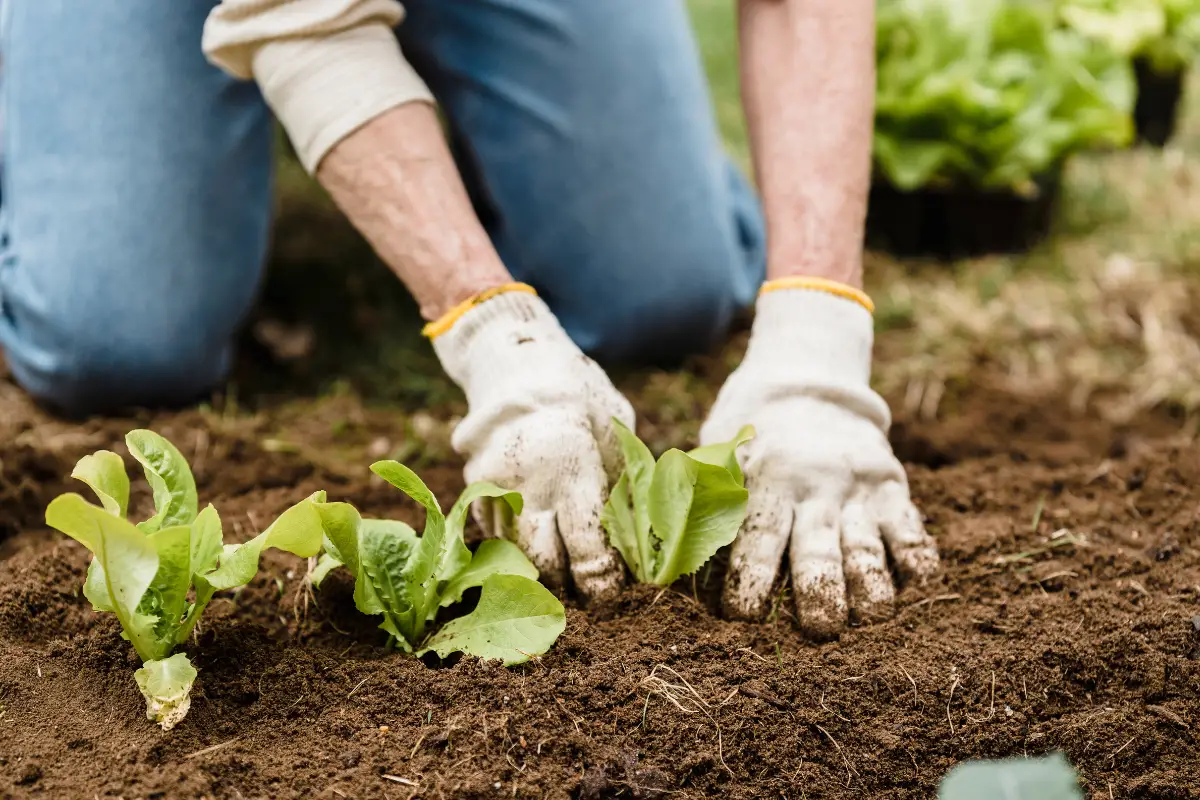Sunflowers are one of the most popular and easy-to-grow flowers that can add a pop of color to any garden.
However, one of the most common questions that arise when growing sunflowers is how often they should be watered.
The answer to this question is not straightforward, as the watering frequency depends on various factors such as weather conditions, soil type, and the size of the plant.
As a general rule of thumb, sunflowers should be watered about once a week. However, this frequency may vary depending on the weather conditions.
For instance, if the weather is hot and dry, sunflowers may require more frequent watering. On the other hand, if it has been raining, sunflowers may not need to be watered as often.
It is also important to check the soil’s moisture level before watering the sunflowers to avoid overwatering, which can lead to root rot and other problems.

Table of Contents
Understanding Sunflower Watering Needs
Soil Type
The type of soil in which sunflowers are grown is a crucial factor in determining their watering needs.
Sandy soil drains water quickly, and therefore, sunflowers grown in sandy soil require more frequent watering than those grown in clay soil.
On the other hand, clay soil retains water for a longer period, and sunflowers grown in clay soil require less frequent watering.
Sunflower Varieties
The watering needs of sunflowers depend on the variety being grown. Dwarf sunflowers require less water than giant sunflowers, as they have smaller root systems.
The size of the sunflower also determines how much water it needs. Small sunflowers require less water than large sunflowers.
Weather Conditions
Weather conditions play a significant role in determining how often sunflowers should be watered.
During hot and dry weather, sunflowers require more frequent watering than during cool and damp weather.
If the weather is humid, sunflowers require less water as the humidity helps to retain moisture.
It is essential to water sunflowers deeply rather than frequently. When watering sunflowers, water the soil thoroughly so that it sinks down around 6 inches below the surface.
This will encourage the roots to grow deeper, making the plant more resilient to drought conditions.
Overwatering sunflowers can lead to root rot and other problems, so it is crucial to avoid watering them too much.
In summary, the watering needs of sunflowers depend on the type of soil, the variety being grown, and the weather conditions.
Understanding these factors will help sunflower growers determine how often to water their plants, ensuring that they grow healthy and vibrant.
Watering Frequency for Sunflowers
Sunflowers are hardy plants that can tolerate drought, but they still need a consistent supply of water to grow and thrive.
The amount of water they need depends on various factors such as air temperature, rainfall, and the stage of growth they are in.
Seedling Stage
During the seedling stage, sunflowers require more frequent watering to establish their root system.
It is recommended to water them every other day or when the top inch of soil feels dry.
Be careful not to overwater them as it can lead to root rot and other issues.
Growth Stage
Once the sunflowers reach the growth stage, they need less frequent watering.
It is recommended to water them once or twice a week, depending on the weather conditions and the soil’s moisture level.
To check if they need watering, feel the soil about 3 inches deep. If it is mostly moist, leave it be, and if it is mostly dry, add water.
Flowering Stage
When the sunflowers start to bloom, they require more water to support their growth and development.
It is recommended to water them twice a week or when the top 2 inches of soil feels dry.
Be sure to water them deeply, so the water reaches the roots and doesn’t just wet the surface soil.
It is important to note that overwatering sunflowers can be just as harmful as underwatering them. It can lead to root rot, mold, and other issues.
Therefore, it is essential to find the right balance and water them appropriately.
In summary, the watering frequency for sunflowers varies depending on their growth stage.
During the seedling stage, they need more frequent watering, while during the growth and flowering stages, they need less frequent watering.
Always check the soil’s moisture level before watering and adjust accordingly.
Signs of Overwatering and Underwatering
Sunflowers need the right amount of water to grow healthy and strong.
Overwatering or underwatering can lead to various problems that can affect the plant’s growth and development.
Here are some signs of overwatering and underwatering sunflowers:
Signs of Overwatering
- Yellowing leaves: When sunflower plants develop fading leaves, it might be an indication that the soil has too much water. If the plant is overwatered, the roots will not be able to absorb oxygen adequately, which will result in the leaves turning yellow.
- Root rot: Overwatering can lead to root rot, which is a fungal disease that affects the roots and can kill the plant. Root rot can cause the roots to become brown and mushy, and the plant may start to wilt and die.
- Mold or mildew: Overwatering can create a moist environment that is conducive to mold and mildew growth. These fungi can cause the leaves to turn brown or black, and the plant may start to smell musty.
Signs of Underwatering
- Wilting: When sunflowers don’t get enough water, they may start to wilt. The leaves may droop, and the plant may look weak and sickly.
- Dry soil: If the soil around the sunflower plant is dry, it may be a sign that the plant is not getting enough water. The soil should be moist but not waterlogged.
- Stunted growth: Underwatering can lead to stunted growth in sunflowers. The plant may not grow as tall as it should, and the flowers may be smaller than usual.
It’s important to monitor the soil moisture levels regularly to avoid overwatering or underwatering sunflowers.
Stick your finger into the soil around the plant’s base to check if it feels dry a few inches down.
Water the soil thoroughly (deep watering) so it sinks down around 6 inches below the surface.
For optimal growth, sunflowers need 1-2 inches of water each week, but this amount can be adjusted based on the type of soil in your garden, the weather, and whether you’re growing a giant sunflower or a dwarf variety.
Common Mistakes in Watering Sunflowers
When it comes to watering sunflowers, there are some common mistakes that gardeners make.
Here are a few things to avoid:
Overwatering
One of the most common mistakes in watering sunflowers is overwatering. Sunflowers do need a lot of water, but too much can be harmful.
Overwatering can lead to root rot, which can kill the plant. Signs of overwatering include yellowing leaves, wilting, and a foul smell.
To avoid overwatering, make sure the soil is well-draining and don’t water too frequently.
Check the soil moisture regularly and only water when the top inch of soil is dry.
Underwatering
On the other hand, underwatering can also be a problem. Sunflowers need a lot of water, especially during hot, dry weather.
If they don’t get enough water, they can wilt and die. Signs of underwatering include drooping leaves, dry soil, and a lack of growth.
To avoid underwatering, make sure to water deeply and frequently during the growing season.
Sunflowers can drink up to a gallon of water per day during hot, dry weather.
Watering from Above
Watering sunflowers from above can also be a mistake. Watering from above can lead to fungal diseases and can also damage the flowers.
Instead, water at the base of the plant using a soaker hose or drip irrigation system.
Watering at the Wrong Time
Watering sunflowers at the wrong time can also be a mistake. Watering during the heat of the day can lead to evaporation and can also damage the leaves and flowers.
Watering at night can lead to fungal diseases. The best time to water sunflowers is in the morning, before the heat of the day.
By avoiding these common mistakes, gardeners can ensure that their sunflowers thrive and produce beautiful blooms.
Tips for Watering Sunflowers Effectively
Watering sunflowers is crucial to their growth and health. Here are some tips to help you water your sunflowers effectively:
- Check the soil moisture regularly: Sunflowers need consistent moisture, but overwatering can lead to root rot. Check the soil moisture regularly by sticking your finger about 3 inches deep into the soil. If it feels dry, it’s time to water. If it feels moist, wait a day or two before checking again.
- Water deeply: When you water, make sure to water deeply so that the water reaches the roots. Shallow watering can lead to shallow roots and weak plants. Aim to water the soil around the sunflowers to a depth of at least 6 inches.
- Water in the morning: Watering in the morning is ideal because it allows the plants to absorb the water before the heat of the day. Watering in the afternoon or evening can lead to water sitting on the leaves overnight, which can lead to fungal diseases.
- Adjust watering frequency based on weather: The amount of water sunflowers need can vary depending on the weather. During hot and dry weather, they may need to be watered more frequently. During cooler and wetter weather, they may need less water.
- Use a watering can or drip irrigation: Using a watering can or drip irrigation system can help ensure that the water is delivered directly to the soil around the sunflowers, rather than getting water on the leaves. This can help prevent fungal diseases.
By following these tips, you can help ensure that your sunflowers get the water they need to grow strong and healthy.
conclusion
In conclusion, the frequency of watering sunflowers depends on various factors such as the climate, soil type, and age of the plant.
It is generally recommended to water young sunflowers more frequently to promote healthy growth, while mature sunflowers require less frequent watering.
It is important to monitor the soil moisture level and avoid overwatering, which can lead to root rot and other plant diseases.
By following these guidelines and adjusting watering frequency based on the specific needs of your sunflowers, you can help ensure their optimal growth and health.
- How to Build a Planter Box for Bamboo: A Step-by-Step Guide

- Can Robotic Lawnmowers Handle Steep Slopes?

- Do You Need a Specific Lawn for a Robotic Lawnmower? Expert Advice

- Are Robotic Lawnmowers Safe for Pets and Children? Safety Features of Robotic Lawnmowers

- Why Use Robotic Lawnmowers? Advantages of Using a Robotic Lawnmower

- Is the GARDENA SILENO City 300 Cordless or Corded? A Clear Answer














